Bath time can be a worrying time, especially for parents dealing with newborns. Due to unforeseen circumstances, these infants can accidentally swallow some bath water. This can be very stressful for parents who are familiar with certain water-related risks such as water intoxication and the potential for infection.
Fortunately, swallowing bath water is a common occurrence when bathing babies and should not be a cause for too much concern. While the baby can possibly cough, splatter, or even burp, most cases of swallowing bath water would not cause a reaction.
However, there are still signs parents can look out for to make sure that their babies are perfectly fine after swallowing some bath water. Although many would consider swallowing bath water to be inevitable when bathing babies, there are several ways parents can prevent this from happening.
Should You Be Worried if Your Baby Swallowed Bath Water?
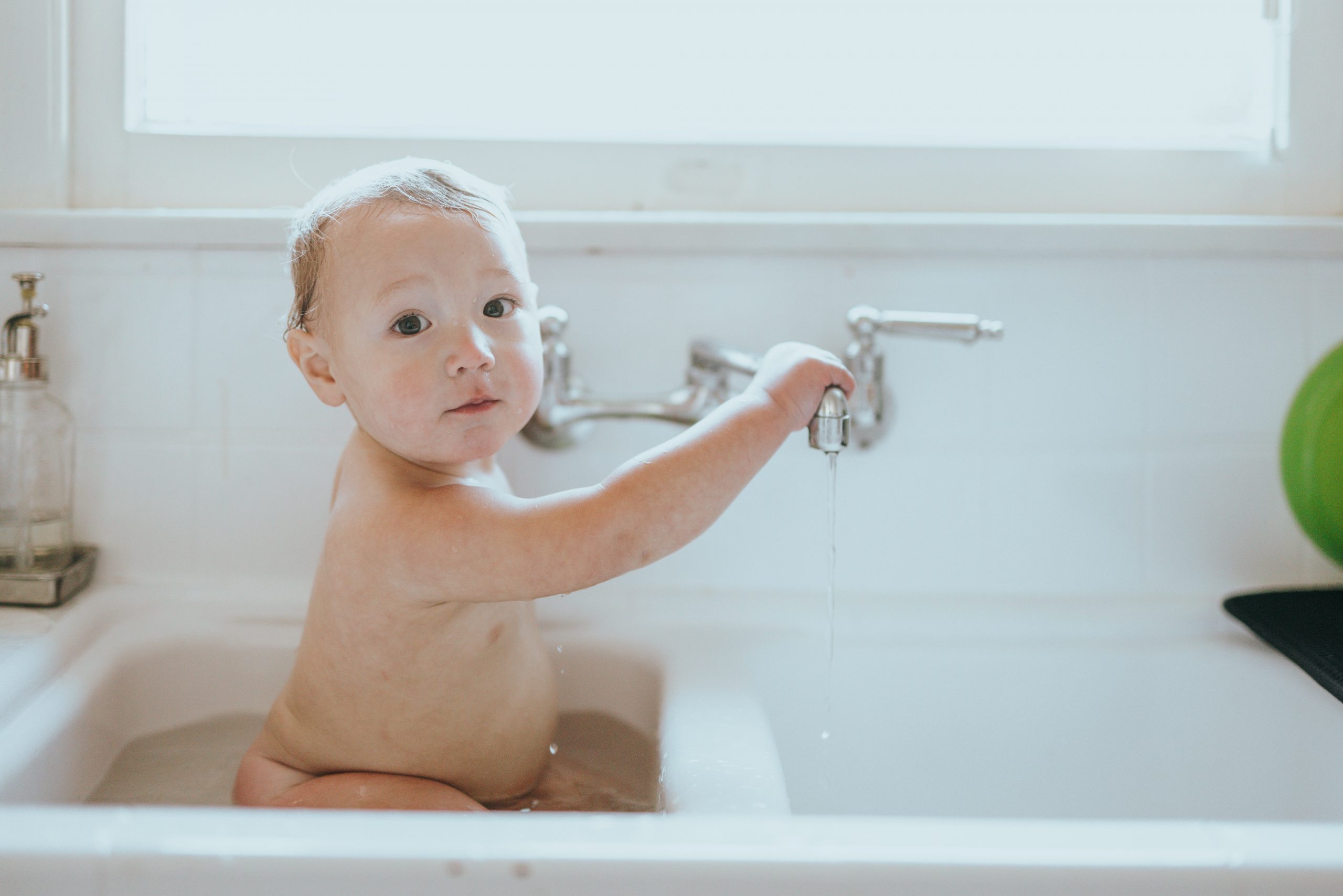
In most cases, parents should not be worried when babies swallow bath water. The bath water would simply pass through their system without issue. Swallowing bath water is considered to be highly common during bath times, especially when the infants are constantly moving, when water is poured over their heads, or when they are intentionally being curious.
Even if your baby would cry after swallowing bath water, it could still be from shock instead of something more critical.
When To Be Concerned
-
If the Baby Swallowed a Lot of Bath Water
Parents would be rightfully concerned when their baby has swallowed a lot of bath water. This is because babies under 6 months old should not yet be drinking water. Swallowing a little water may not be harmful, but accidentally swallowing a lot of water can lead to a condition known as “water intoxication.”
Water intoxication is typically considered to be a rare medical event that follows the ingestion of an excessive amount of water in infants. The ingestion of water can dilute the electrolytes found in the baby’s bloodstream. Affecting normal bodily functions, water intoxication can then lead to symptoms such as low body temperature and even seizures.
If a baby has swallowed a large amount of bath water and has not spit it up, then the parents could proactively look out for water intoxication symptoms as a precaution. Since brain activity will be hampered, early symptoms can include irritability, drowsiness, or any other drastic mental change. Puffiness or swelling in the face can also be a symptom of water intoxication.
If parents suspect water intoxication, they should seek medical attention right away. The problem with water intoxication is that the symptoms can be quite inconspicuous to the untrained eye. The first obvious symptom that most parents would detect is when the baby is having a seizure. Early medical attention can reduce the odds of lasting consequences.
-
If the Baby Swallowed Bath Water Mixed with Soap
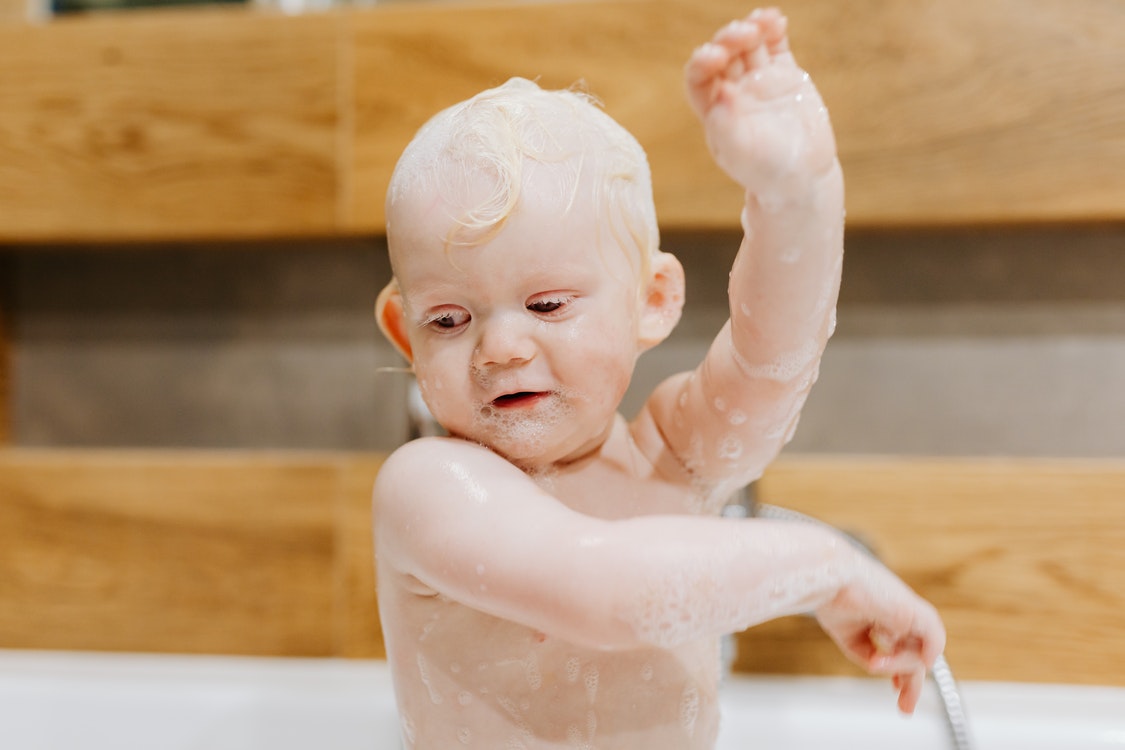
Swallowing water is one thing, but swallowing water mixed with soap or shampoo is another. Soap and shampoo can potentially contain harmful substances that can pose health risks to the infant.
There are several different ingredients commonly found in soap and shampoo that parents should be aware of. These include formaldehyde and lauryl sulfate.
Swallowing a little bath water mixed with soap or shampoo can possibly lead to an upset stomach. Beyond that, there seem to be no drastic consequences to it. Infants are also unlikely to swallow large amounts of bath water mixed with soap and shampoo because of the taste. Thus, babies are most likely to spit it up right away.
Even if some ingredients do not pose any immediate concern, there are some ingredients in baby soap and shampoo that parents can be more aware of. These are compounds that have been studied to possibly play a role in cancer. These include
For parents who are concerned with these harmful ingredients, they can always opt for soaps and shampoos that are marketed to be fragrance-free, BPA-free, phthalate-free, and so on.
If parents are worried about their babies ingesting questionable amounts of bath water mixed with soap and shampoo, they can alleviate their concerns by calling proper authorities. In the US, parents can easily contact the Poison Control Centers by calling them at 1-800-222-1222, or through their online services.
Dry Drowning
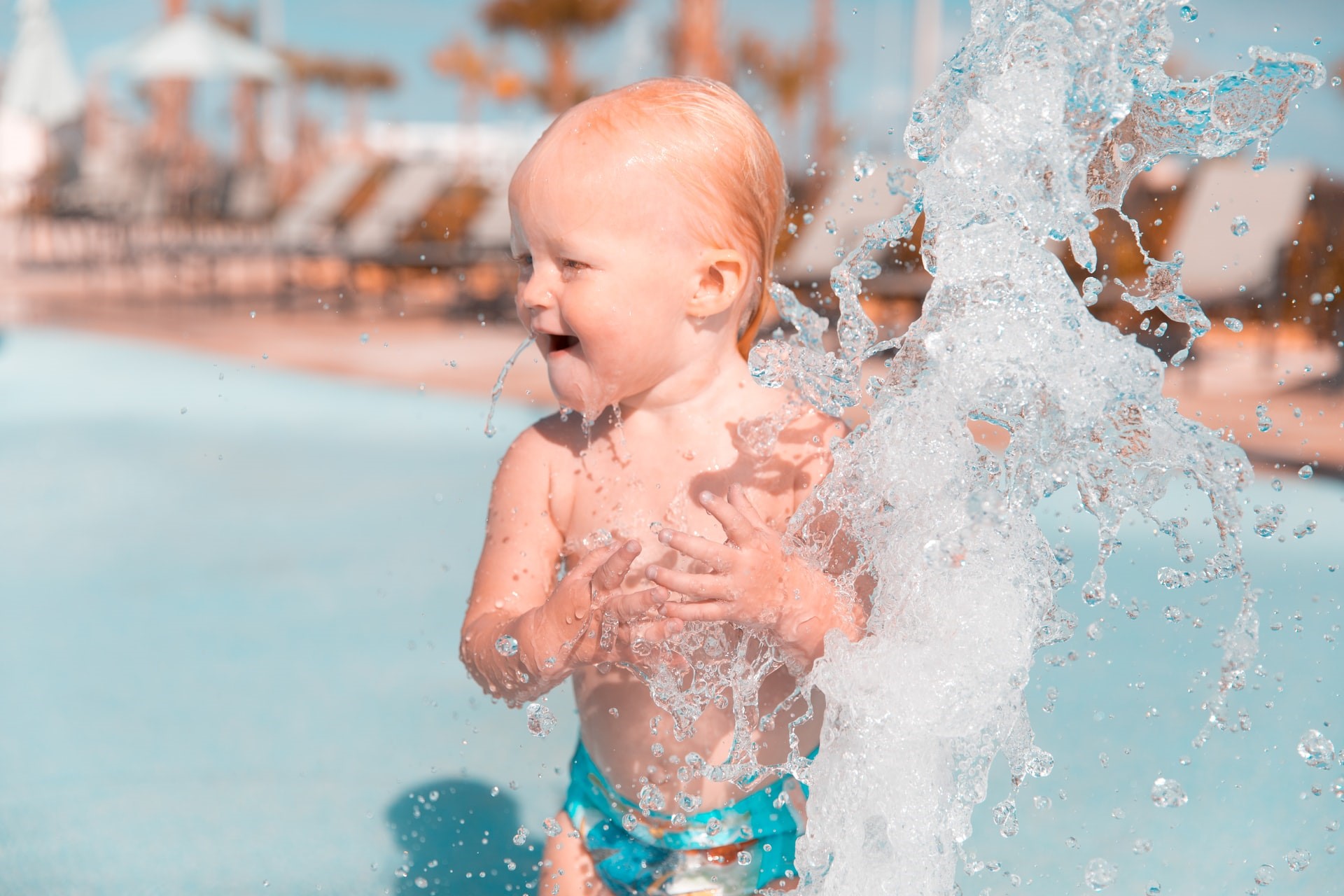
Some parents are also quite concerned when their infants have swallowed bath water because of the possibility of dry drowning. The phenomenon is described as when an individual accidentally inhales water and appears to be alright for the time being, but then suffocates due to the water in the lungs a few hours later. The water intake can be due to the inadequate time for the airways to shut close, inadvertently introducing water into the lungs.
This has also been known as secondary drowning or delayed drowning. However, there seems to be conflicting data online regarding dry drowning. While drowning itself is a leading cause of death in children, dry drowning seems to be rather controversial.
Many sources cite that dry drowning is a serious concern. Understandably, parents erring on the side of caution would be worried if their babies would fall to the same fate – especially if it is an outcome that they can intervene.
However, experts state that dry drowning may have resulted from overexaggerated mainstream media. Drowning mainly occurs in two ways: submersion or immersion. Submersion is when an individual’s airway goes below the water surface while immersion is when water is splashed on an individual, causing the water to enter the airway.
When water enters the airway, an individual’s instinct is to spit it out or swallow it. In continued water exposure, an individual is then forced to hold their breath. However, this does not usually last for over a minute. Beyond the individual’s capabilities, they are forced to inhale, aspirating water into their airway. This leads to uncontrollable coughing until brain hypoxia begins. Thus, true drowning occurs in a matter of minutes.
How To Prevent Babies From Swallowing Water
1. Have Everything for Bath Time Prepared
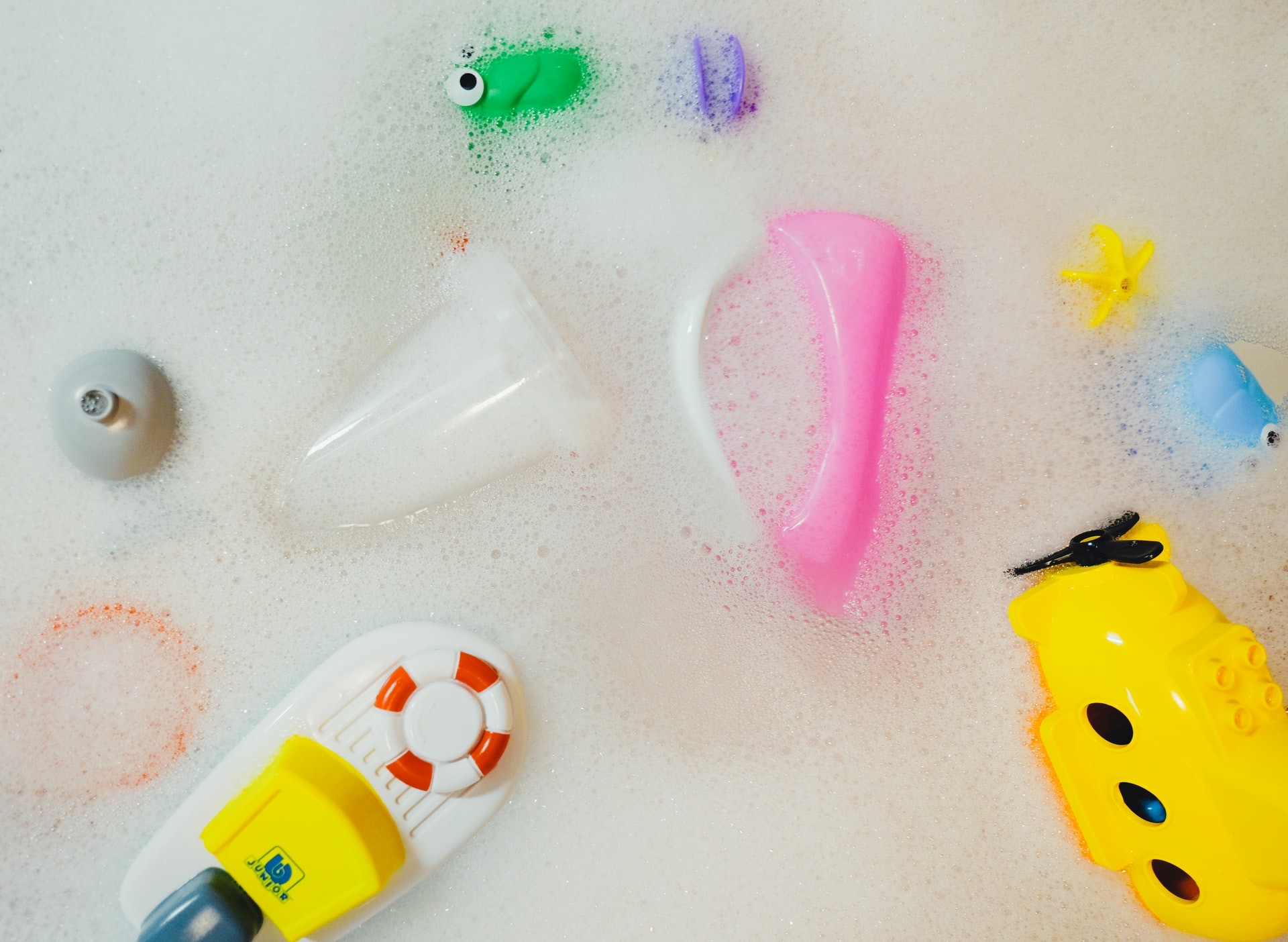
Before even bringing the baby into a bathroom, parents have to make sure that everything they will need during bath time is already there. These baby bath supplies can range from rinsing cups, thermometers, soap, shampoo, soft hooded towels, soft wash cloths, and toys.
The reason for needing everything prepared is to prevent the parent from having to turn away to get something that they have forgotten. For the infant’s safety, constant supervision is highly recommended.
2. The Baby Should Never Be Left Alone
It must be common sense for parents to never leave their babies alone unsupervised, especially in situations that can lead to disastrous results. Even if the water is low enough where the baby can sit up above the water line, the baby should still never be left alone as they can still fall down into the water.
If the parent bathing the baby requires something from a different room, they should ask someone else to get the item or have them supervise the baby while the parent leaves the bathroom.
3. Have a Baby Seat
Another way to make giving babies baths easier and safer is by having a baby seat. These are seats can help immobilize babies inside bathtubs. A good feature to look for in a baby bath seat are suction cups that allow you to anchor and stabilize the seat to the side of the tub.
Baby seats help keep babies in a seated position during bath time, making it easier for parents to make sure their heads are above the water line. Some baby bath seats also come with swivels to allow parents to swing babies around, making it easier to reach certain places.
4. Bath Mats Help Avoid Slipping
Bath mats should be prioritized when bathing a baby on a slippery surface, such as the porcelain surface of a bathtub. While bath mats can come in a wide array of materials, it is recommended to get a non-slip material such as rubber or latex to prevent slipping.
5. Bathing Caps and Visors
Even when the parent keeps the baby above the water at all times, pouring water over their heads can still introduce water for them to potentially swallow. One way to reduce the likelihood of water hitting their face is by getting the baby a bathing cap or a visor. These are specialized headgear that help draw water away from the baby’s face.
6. Keep the Water Level Low
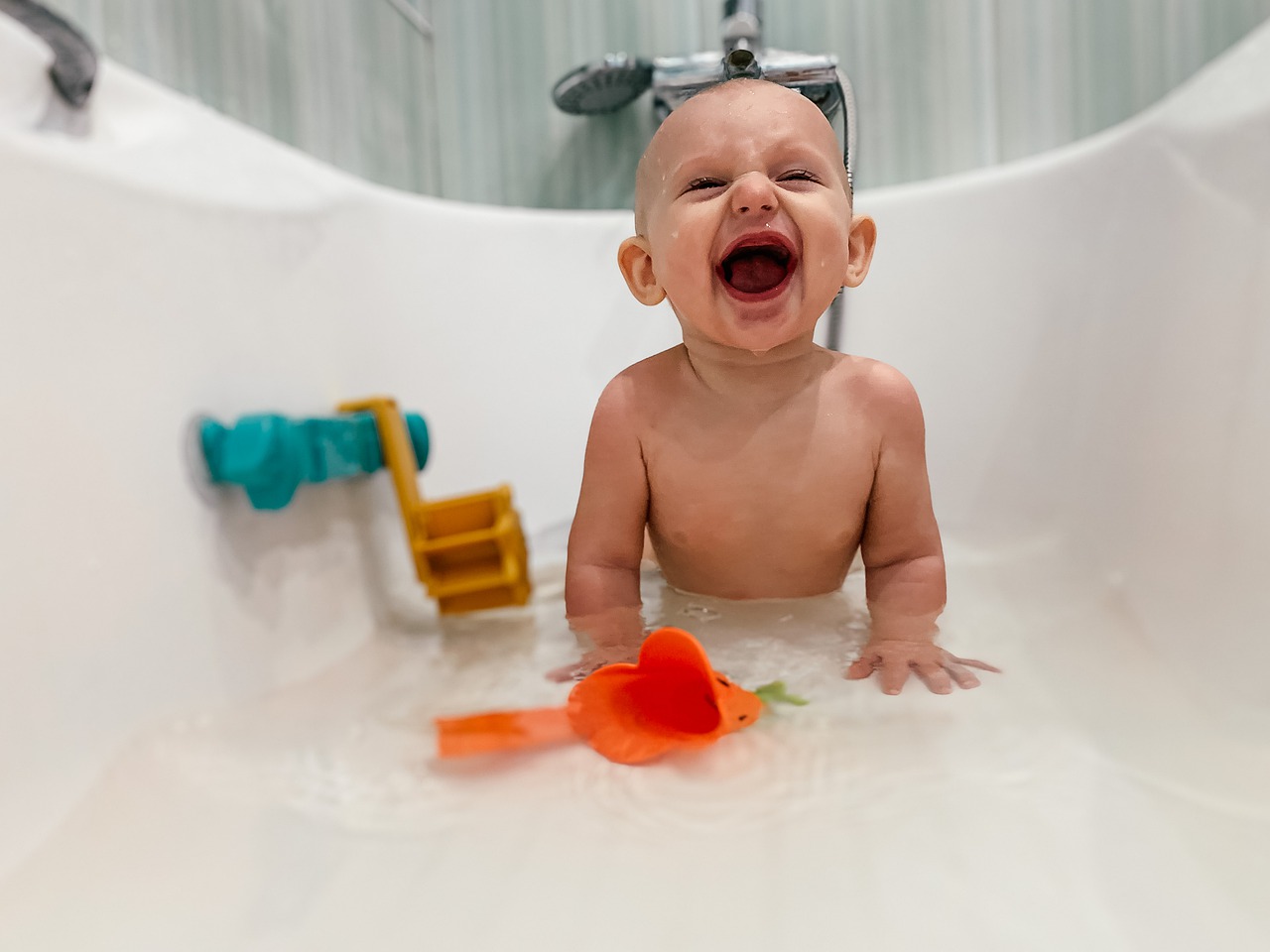
Bath time is usually enjoyed by babies when the water is high up to their chest. However, logic dictates that the higher the water, the higher the risks are for swallowing water.
Keeping the water level low greatly reduces the chance of babies swallowing water, even when they are constantly moving around. However, having a low water level is still not an excuse to leave the baby in the bathtub unattended – even for a moment.
Bottom Line
Parents of newborns and infants will always be concerned if their babies swallowed water. Fortunately for them, most cases of swallowing bath water do not result in anything critical. If not without reaction, most babies would simply spit up the water, especially if the bath water was mixed with soap and shampoo.
However, there is no reason to delay medical attention if the parents notice anything out of the ordinary such as a change in color, change in behavior, and such. The best course of action for parents to take is for them to be prepared for a wide variety of situations.